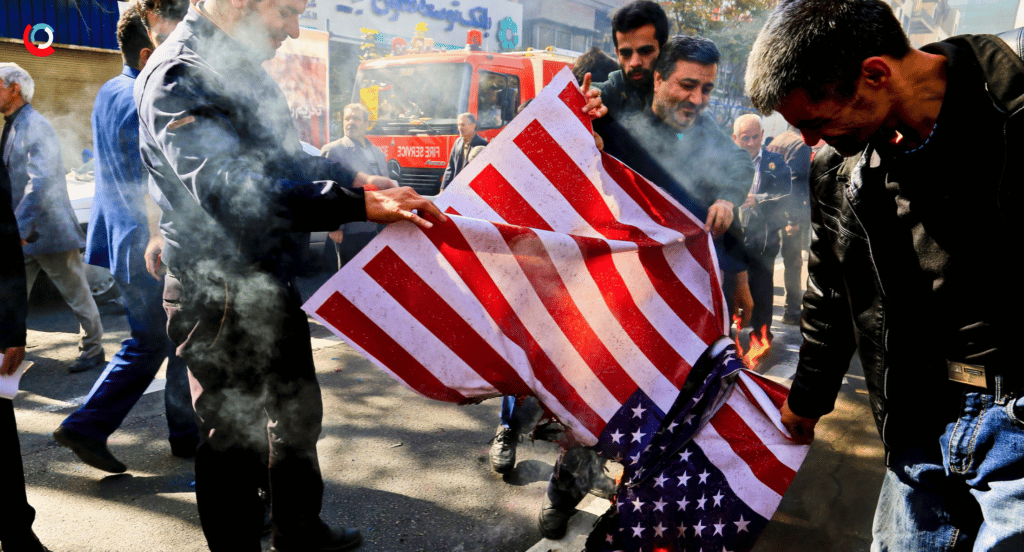By Paul Mutter
Introduction
Bringing the Joint Comprehensive Plan of Action (JCPOA) governing Iran’s nuclear program back into full enforcement remains an elusive prospect for its signatories, especially the United States (US) and Iran. Various outstanding issues remain to be negotiated between the two countries: The potential de-listing of Iran’s Islamic Revolutionary Guard Corps (IRGC) as a terrorist organisation, the lifting of international sanctions, the removal of excess nuclear materials accumulated by Iran since the deal was terminated by the US in 2018 and the expansion of International Atomic Energy Agency (IAEA) inspections inside Iran. Little progress has been made in these areas despite one and half years of negotiations under US President Joe Biden’s administration.
These are all solvable issues. The main sticking point is usually left unsaid: What would stop the US from again withdrawing from the JCPOA when a new presidential administration takes office? There were and are no mechanisms to prevent this from happening, as it did in 2018, when former president Donald Trump unilaterally terminated the deal two years after it took effect. His antipathy to the JCPOA is widely shared throughout the Republican Party, and any future Republican president would seek to undo a deal reached by a prior Democratic Party president. With the issue arising every four years and poisoned by partisanship, other signatories must ask themselves if the deal is worth the paper it is written on.
War in the Shadows
The larger security and economic environment in the Middle East has not really improved since the 2019-2020 war scare triggered by escalating US-Iran tensions culminating in the US assassination of then-IRGC head Qasem Soleimani and Iranian retaliation with ballistic missile attacks on US bases in Iraq. (International opinion was largely on Iran’s side, despite Soleimani’s militant record, until Iran accidentally shot down Ukrainian Airlines Flight 752 during the war scare and attempted to cover up the disaster.) Regarded as an “untouchable” target for many years due to the risk of escalation, few other Iranian officials targeted since by the US or Israel for assassination rise to his level.
Nonetheless, relations between the US and Iran remain poor and relations between Iran and Israel are in a full-scale cold war. While Israel has improved its ties with the Gulf Arab states already hostile to Iran, especially Saudi Arabia and the United Arab Emirates (UAE), Iran maintains its ring of proxies bordering Israel in Gaza, Lebanon and Syria. Cross-border rocket and drone attacks, attempted abductions and targeting of Israeli nationals abroad by Iranian assassins have all continued.
Israeli-sponsored operations to destroy Iranian nuclear infrastructure, such as the 2009 and 2021 cyberattacks on the Natanz Enrichment Complex, and the assassination of nuclear scientists, at least five since 2002, including the then-director of the program, Mohsen Fakhrizadeh, in 2020, have slowed but not stopped Iranian nuclear developments. Due to the collapse of the JCPOA’s mechanisms, Iran has far more enriched uranium now than before the deal was negotiated. While the Israeli security services have at times grudgingly admitted, in public and in private, that the JCPOA was a better alternative than no deal at all, then-Israeli Prime Minister Benjamin Netanyahu vehemently opposed the deal, and the current Israeli government is not very supportive of it either.
Iranian authorities have imposed limits on international inspectors from the IAEA, due to a hardening of sentiments in favour of maintaining an expanded nuclear program. Paranoia has also played a role; the success of Israel and its local proxies, including the controversial Mujahedin-e-Khalq (MEK), in targeting Iranian officials inside Iran shows that Iran is an open book to its enemies who can act with impunity in spite of Iran’s massive domestic security apparatus. Such stalling has been met with a tightening of US sanctions on Iran’s energy sector. Failure to restore the JCPOA to its full implementation will simply mean more of the same by all sides: Iran inching closer to restarting its (mostly) shelved weapons program, Israel striking from the shadows to halt Iran’s progress, Iran seeking revenge on Israel for these attacks, back and forth, tit for tat, for the foreseeable future. At least until one side decides it can no longer suffer the pinpricks of the other.
Summary
Talks among the signatories of the Joint Comprehensive Plan of Action (JCPOA) to bring the United State (US) and Iran back into compliance with the deal after the US withdrew in 2018 and Iran no longer observed mechanisms to maintain low levels of uranium enrichment began in 2021 but have yet to reauthorise the deal. It is likely that the window has already closed to do so in light of how badly US-Iran relations have deteriorated over the past four years.
Paul Mutter is a US-based political and security risk analyst.















